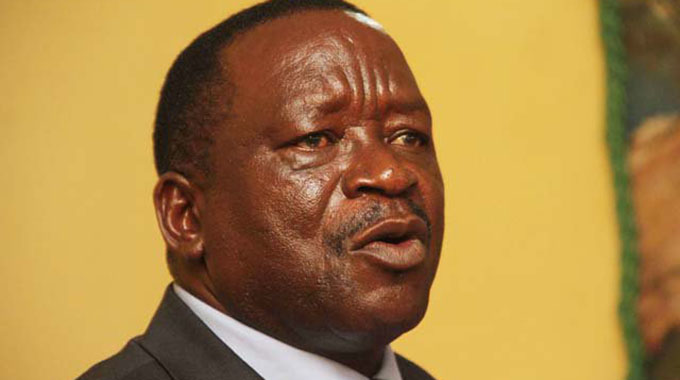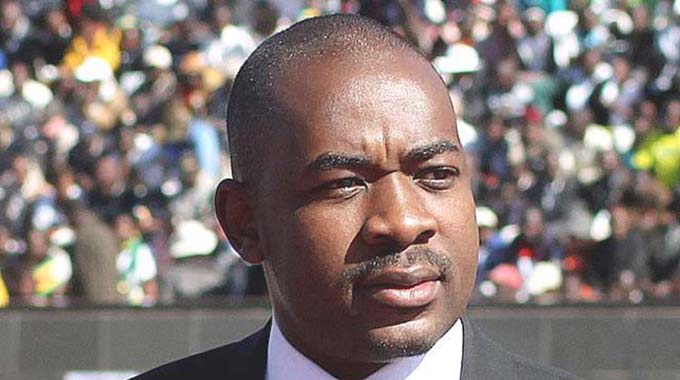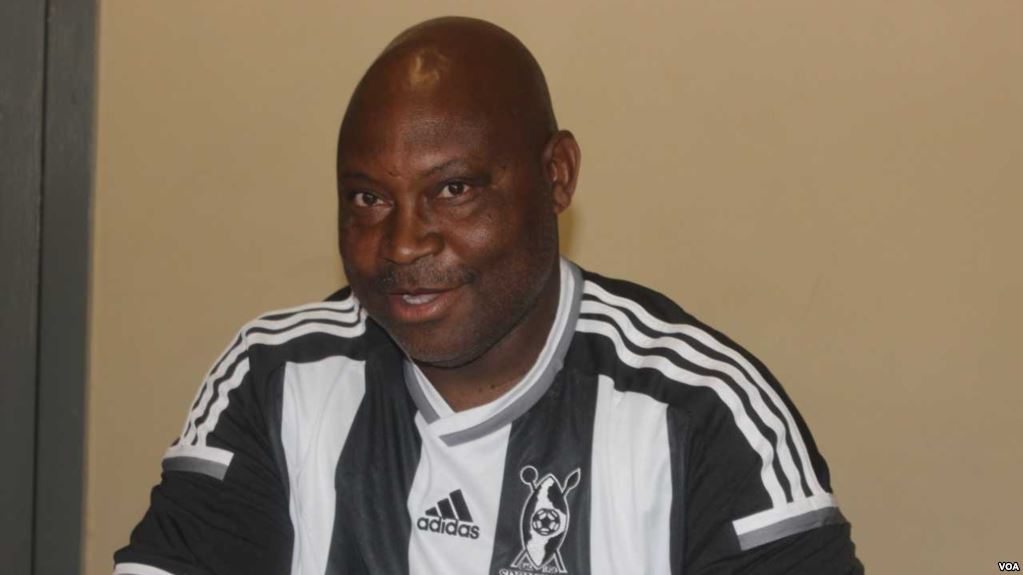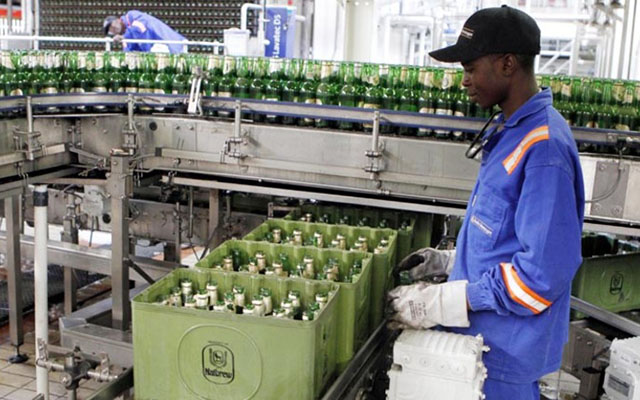Not good to debate a liar

Nick Mangwana View from the Diaspora
Cde Victor Matemadanda is a member of the Zanu-PF Central Committee and Politburo where he is Secretary for the War veterans. He is known for speaking his mind and will never get an accolade for pulling punches. He is an aspiring Member of Parliament and a known loyalist of President Mnangagwa. He recently expressed outrage at the mere notion of having President Mnangagwa enter a head-to-head debate with Nelson Chamisa. For an aspiring MP he used what some might call “un-parliamentary language” while those who identify with his views believe he used some very apt and on point put down to Mr Chamisa.
The gist of his message was that a person of the President’s stature cannot go head-to-head with a “boy scout” like Chamisa. He further said that if he wanted a debate he could debate cadres in the Zanu-PF Youth League, who were at the same political level with him. God did this cause a cause. But what really is the big deal? Do we really need this debate? Does that actually enhance our democracy as claimed by others?
A televised election debate is for all intends and purposes a Media Event. It’s more entertaining and provides a bit of political drama and information to analysts and other self-appointed experts in different fields. But what has been agreed on by many researchers is that they hardly change the opinion of voters. They reinforce pre-held positions.
So if for example President Mnangagwa was to debate Mr Nelson Chamisa, Zanu-PF supporters will not be swayed to vote for MDC based on how Chamisa performs nor will MDC supporters vote Zanu-PF because ED has shown a statesmanlike deportment and well known grasp of issues.
It has been said that a television debate tells individual members of the audience what they already think and not what to think. It has been discovered that presented with sets of information, viewers are likely to accept those perspectives already close to their thinking and dismiss that which is not so proximate. In short, debates entertain, but will never convert partisans, but may have an effect on fence seaters. In many cases, these are few. There is a lot of academic debate about this.
What seems to generate an academic consensus is that an election debate generates a lot of interest in an election.
But when dealing with a party as organised as Zanu-PF there is already a very heightened interest in the election within its ranks.
The number of candidates contesting its primary elections and the contentious nature of the vetting process is just part of the overwhelming. Zanu-PF does not need a televised debate for its members and supporters to come out in full force to vote it back into power. The opposition does. The decision is whether Zanu-PF sees anything to gain from this. Its supporters are already full throttle in election mode and in full political awareness.

Mr Chamisa
Some argue that televised debates are a democratic need because they help disseminate information about policies and temperament of the candidates. This writer would argue that in the Zimbabwean context there is probably not much difference between that and those big booklets we call Manifestos.
How many voters actually read them before making decisions on who to vote for? How many really read the Zanu-PF Manifesto in 2013 or the MDC-T one? Political players, analysts, bloggers, commentators and potential investors possibly did. But not the ordinary voter. The challenge to the reader right now is, did you read from start to end of any of these?
It is also a paternalistic view that the public does not know what they know until they see a debate. But we cannot run away from the fact some of this is just to feed a drama-hungry social media frenzy.
Without doubt election debates can be enthralling, but are they crucial for our political context? Are they democracy enablers? They are not. When about 65 percent of our population is rural based and doesn’t have TVs, their voting pattern is determined by something other than the sitting poise of a candidate.
Election debates are interesting, but not informative to the voter on matters of substance. It’s just a good moment for the challengers to be seen at a political par with the incumbent and therefore more beneficial to the challengers than the incumbent. It’s a popular lie to suggest election debates are democracy enhancers. Political debates in their current format are not information dissemination platforms, but a competing forum for soundbites, buzzwords and catch phrases. Right now Zimbabwean people are not looking for rhetorical prowess. They have had it for a very long time. They are not looking for a marquee glamour model. They are looking for safe hands to steer this economic ship to the shore of national prosperity. So the debates will not teach them anything else than what they already know.
Election debates are great benefit to unknown candidates because they get a chance for posturing and an opportunity to have a go at the leading candidate. But what they are is not an opportunity for candidates to posit their ideological histories.
In the UK, Leader’s Debates were introduced in 2010, by Gordon Brown and lauded as a step in public accountability. They did not benefit Labour or Conservatives who are the two leading parties.
They benefited the Liberal Democrats who ended up in a coalition government on the back of Nick Clegg’s performance in the debates.
That scenario is likely to be repeated in Zimbabwe in that if they are to be opened to all players it is only Nkosana Moyo and other peripheral entities that are likely to benefit from such. This is not to say he is the third leading candidate, but he has no political structure, political platform or an audience. A television audience is his opportunity to shine. But not President Mnangagwa’s. He is the front runner in this race by a mile and has much less to gain from any televised debate.
This was probably the reason that in June 2017, Theresa May junked the idea and refused to participate in a seven-way debate. She was 20 points or so ahead and the risk was not worth it. No polls for Zimbabwean elections have been released yet, but it is possible that President Mnangagwa is ahead by a much higher lead.
His biggest support base is mainly rural. Most of them don’t have televisions so they are not likely to see these debates. The major audience is likely to be in Harare and Bulawayo and other urban areas as well as the Diaspora.
Most of these have already made up their minds on how they are going to vote. It is clear, it’s unlikely to benefit President Mnangagwa to participate in any televised debate.
There are two different views on whether President Mnangagwa should participate in a televised debate.
Those on the opposition believe Mr Chamisa would win a debate against President Mnangagwa.
But the two have sparred in Parliament so many times when he was the VP and leader of the Government business in Parliament and he showed his sharp mind and wit. He has already arguably won a lot of these tussles.
This is not about giving voters information for their election choice.
This writer has gone into the studio for a debate with a leading opposition candidate in December 2017. After both parties had travelled for a well planned and agreed debate the presidential candidate completely refused to participate. There could be some logic in it.
He probably realised that there was nothing for him to win out of this. So what’s wrong today if President Mnangagwa realising there is no political benefit for him in elevating a junior contender to his level? If it’s about giving voters policy information, then candidates should be able to debate whoever is put before them by their party.
They cannot choose who they want. Isn’t there a reason why the President does not participate in parliamentary debates?
The efforts to pitch a televised election debate between Nelson Chamisa and President Mnangagwa as a gladiatorial affair is meant to promote Nelson Chamisa from his caricature of an immature boy-like fantasist into a statesman using President Mnangagwa as the currency.
Now, President Mnangagwa has not yet taken a position on this. But the feeling within Zanu-PF is that its President is not at the same level as Chamisa and he should not allow himself to be lowered to that level or Chamisa to be promoted to his level.
While this might be considered by its detractors as haughty and having a loft view of its president put downs are a fair political tool and this is one.
It is the same put down Cde Matemadanda issued when he figuratively equated Chamisa’s rallies and all he has been doing to a goat scratching an itchy skin against the wall while those in the house remain unfazed.
But when all has been said and done, it’s a bad idea to debate someone who lies a lot.









Comments